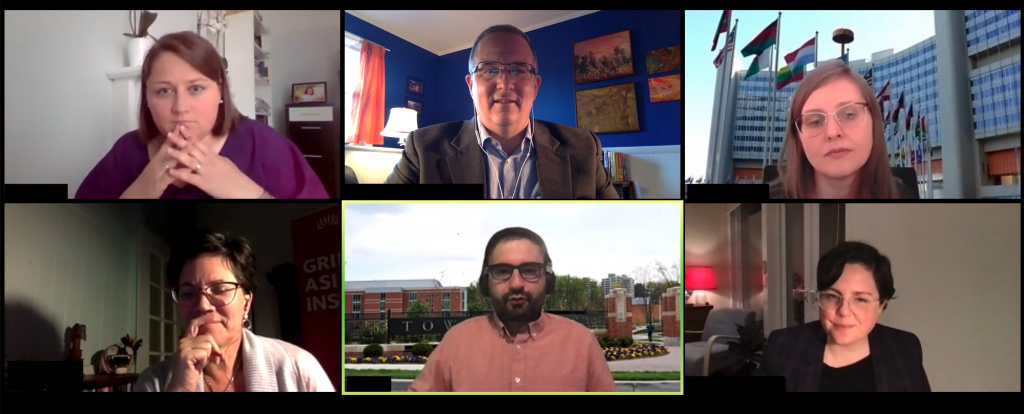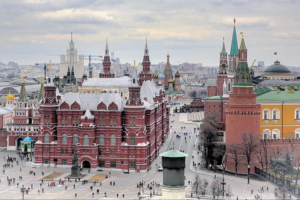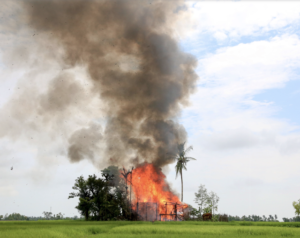
ICA/ISA Roundtable on Public Diplomacy
FEATURES
Bridging the IR and Comms Science Gap in the Field of Public Diplomacy
By Alina Dolea and Efe Sevin
July 1, 2020
One of the hallmark characteristics of public diplomacy is its interdisciplinary nature – which has been a blessing and a curse for scholars and practitioners alike. On one hand, our knowledge has been enriched by a variety of disciplines, including – and definitely not limited to – communication, international relations, history, sociology, and marketing. On the other hand, it also means that there is no academic home for public diplomacy studies. Rather, such works can be found scattered among the aforementioned disciplines.
In 2019, the leadership teams of International Communication Association’s (ICA) Public Diplomacy Interest Group and International Studies Association’s (ISA) International Communication Section (ICOMM) came together to discuss how the gap in between the disciplines can be bridged. While the initial idea was to have two joint roundtable discussions – in March during ISA’s annual conference and in May during ICA’s annual conference -, the plans had to drastically change as the former was canceled and the latter was moved to a virtual format.
During ICA’s virtual conference, public diplomacy scholars across the world had a chance to discuss not only the linkages between different theories and institutions but also to reflect on innovative practices to continue academic conversations with the reality of COVID-19 influencing nearly every aspect of our lives.
Co-chaired by Alina Dolea of Bournemouth University, UK (ICA PD IG Chair 2020-2022) and Efe Sevin of Towson University, Maryland, USA (ISA ICOMM Section Chair 2019-2020), the roundtable included Caitlin Byrne (Griffith University, Australia), Constance Duncombe (Monash University, Australia), Natalia Grincheva (Higher School of Economics, Moscow, Russia) and Steve Pike (Syracuse University, USA).
Caitlin started our conversations on ‘what is next in public diplomacy’ with insights on PD practices and policies in the Asia Pacific region, focusing on the official articulation of soft power in Australian foreign policy and the integration of internal stakeholders as co-producers. She also reflected on the IR and communication tensions in the field, linking it largely to the main unit of analysis.
Constance continued the discussion about linking practice and theory in PD, focusing on Zoom Diplomacy, the use of technological platforms and the huge amount of data. She called for ‘slower thinking’, to consider what the platform can actually do and how these data can be analysed, placing an emphasis on education for training practitioners, researchers, and future academics.
Our virtual tour around the globe continued with Natalia on museum soft power mapping in public diplomacy and its value for cultural institutes, as well as the value of cultural policies and programs, especially the Fulbright program. She also touched upon theoretical aspects, mentioning the limits of theories in both IR and PD and questioning the need for ‘universal theories’.
Alina focused on discourses in PD and states’ strategies of image construction during current pandemics, mentioning the UK press briefings that targeted both domestic and international audiences, reproducing competitive logics. She argued we will probably see in academia and PD a resurgence of critical thinking, challenging existing thinking paradigms, analytical criteria, and methodologies.
Across the pond, Steve referred to the current challenges for US public diplomacy and changes in the international arena, highlighting the issues of credibility and need for leadership in public diplomacy. He talked about the identity of practitioners, how they understand and constantly negotiate their roles and identities.
Efe also discussed the current US public diplomacy, but insisted on the consequences of institutional and internal structuring and questioned the future role of PD in the new context given the (financial) resources issue. Lastly, he reiterated the need for institutional mechanisms to boost collaborations & interdisciplinary scholarship in PD and more virtual conversations like this.
Click here to watch the roundtable.


